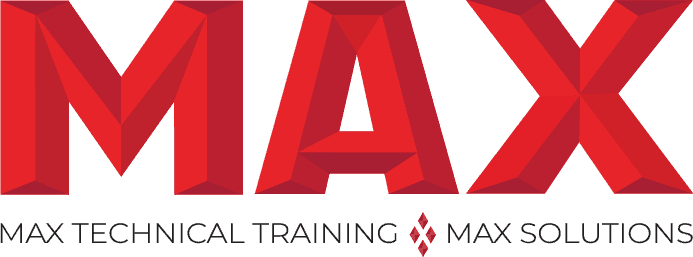Artificial Intelligence (A.I) Courses And Training
Unlock Your Potential With The Best Artificial Intelligence (A.I) Certifications
Artificial Intelligence (AI) training is a comprehensive process essential for creating systems capable of tackling tasks traditionally reserved for human intelligence. It comprises several crucial stages, commencing with data collection encompassing various forms such as text, images, or sensor data. Following data acquisition, preprocessing steps are undertaken to clean and format the data suitably for training purposes. Subsequently, appropriate AI models or algorithms are selected and iteratively trained, adjusting parameters to minimize disparities between predicted and actual outcomes. This iterative process enables the models to learn from the data, improving their performance over time. Evaluation of the trained models is conducted using separate validation sets to gauge their effectiveness and address any issues like overfitting or underfitting. Further optimization techniques, such as hyperparameter tuning, may be employed to enhance performance before deployment into production environments.
Once the trained models meet desired criteria, they are deployed for real-world use, with continuous monitoring to ensure sustained effectiveness. This iterative approach to AI training allows for ongoing refinement based on new data and evolving needs, ensuring that AI systems remain relevant and reliable in dynamic environments. By adhering to robust training methodologies and ethical considerations, organizations can harness the full potential of AI while minimizing risks and biases, thereby fostering innovation and improving efficiency across various domains.

Artificial Intelligence (A.I) Overview
AI training involves collecting and preprocessing data, selecting and iteratively training models, evaluating their performance, and deploying them into production environments, with continuous monitoring and refinement to ensure effectiveness and mitigate risks.
AI Cloud and Platform-Specific

Azure OpenAI Bootcamp for Developers Introduction Welcome to the Azure OpenAI Bootcamp for Developers, a dynamic and comprehensive two-day training program designed specifically for developers beginning their journey with Azure OpenAI.

Designing and Implementing a Microsoft Azure AI Solution: Introduction Welcome to "Designing and Implementing a Microsoft Azure AI Solution," a dynamic three-day program aimed at revolutionizing how you integrate artificial intelligence using Microsoft Azure.

Develop Generative AI Solutions with Azure OpenAI Service (AI-050) Introduction

Azure OpenAI Bootcamp for Technical Users Introduction Welcome to the Azure OpenAI Bootcamp for Technical Users, a comprehensive three-day program tailored for individuals new to Azure and artificial intelligence.

Microsoft Azure AI Fundamentals (AI-900) Introduction Welcome to our Microsoft Azure AI Fundamentals course, your gateway to mastering the foundational concepts of Artificial Intelligence (AI) within the Azure ecosystem.

QuickStart to Using Azure AI for Technical Users Introduction

QuickStart to Using Azure OpenAI Introduction
AI Operations, Security and Testing

Applying AI to Web Security Introduction Applying AI to Web Security is an essential one-day course designed for developers and tech enthusiasts.

Exploring AI Operations Introduction Unlock the full potential of AI for your organization with our comprehensive two-day course, "Exploring AI Operations.

Exploring the OWASP Top Ten for AI Course Introduction Welcome to "Exploring the OWASP Top Ten for AI," a dynamic two-day course led by experts, specifically designed for software developers, IT professionals, and cybersecurity enthusiasts.

Implementing AI in Software Testing Introduction Welcome to 'Implementing AI in Software Testing | AI in Test Automation', a course that covers a wide range of topics, including AI in software testing, AI-powered testing tools, test data generation using AI, test case selection, defect prediction, and test automation.

Mastering AI Security Bootcamp Introduction Mastering AI Security Bootcamp is a three-day course designed for technical users, including cybersecurity professionals, system administrators, developers, and IT managers.

Machine Learning Operations (MLOps) and AI Security Bootcamp Introduction Welcome to our MLOps and AI Security Bootcamp: Mastering Machine Learning Operations , a comprehensive three-day event designed to immerse technical professionals in the crucial areas of Machine Learning Operations (MLOps) and AI Security.
AI Prompt Engineering

AI QuickStart to Prompt Engineering for Everyday Business Users Introduction Embark on a comprehensive AI journey with our one-day, AI QuickStart to Prompt Engineering course.

QuickStart to Mastering Prompt Engineering for Software Developers Introduction Welcome to our "QuickStart to Mastering Prompt Engineering" course, a focused one-day workshop designed for coders and software developers eager to explore AI-driven solutions.

Generative AI Bootcamp for Developers Introduction Welcome to the "Generative AI Bootcamp for Developers," a three-day immersive workshop designed specifically for experienced programmers who wish to dive into the exciting world of Generative AI.
General Artificial Intelligence and Business Applications

AI / AI Ops for Business Innovators Introduction Welcome to "AI / AI Ops for Business Innovators: Intelligent Automation," a specially designed course aimed at non-technical professionals who aspire to harness artificial intelligence (AI) and machine learning for business innovation.

AI Basics Camp Part 1: Getting Started with AI in Business Introduction

AI Basics Camp - Part 2: Transforming Business Ops with Cutting-Edge AI Apps Introduction Welcome to AI Basics Camp - Part 2, your three-day deep dive into utilizing advanced AI tools to enhance business operations.

Getting Started with AutoGPT Introduction Welcome to "Getting Started with AutoGPT," a comprehensive two-day hands-on course designed for business professionals who wish to leverage the power of advanced Artificial General Intelligence (AGI).

Implementing AI in Business Introduction "Implementing AI in Business: Stakeholder Strategies for the Modern Data-Driven, Automated Enterprise" is a comprehensive one-day course designed for business stakeholders.

Leveraging OpenAI for Enterprise Solutions Introduction "Leveraging OpenAI for Enterprise Solutions / AI for Business Bootcamp" is a four-day immersive course designed for experienced developers, data scientists, and business intelligence professionals.

Understanding, Harnessing & Applying Generative AI for Decision Makers Introduction Welcome to "Understanding, Harnessing & Applying Generative AI for Decision Makers and Architects," a comprehensive one-day course crafted to guide participants through the dynamic realm of Generative AI.
FAQ’S About Artificial Intelligence (A.I) Courses And Training Certifications



